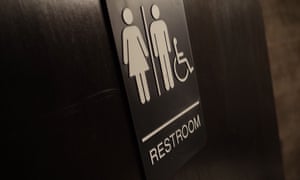Transgender people are substantially more likely to have attempted suicide, to be unemployed, and to be living in poverty than the broader US population, according to a landmark new survey by the National Center for Transgender Equality (NCTE).
The survey of more than 28,000 trans individuals by the Washington DC-based advocacy organization suggests that along with a battery of health and economic indicators, transgender people face persistent discrimination and a litany of other challenges.
“Responses revealed pervasive mistreatment, harassment and violence in pretty much every facet of life whether that be in the schools, the workplace or family life,” said survey project manager Sandy E James.
The results on mental health were of particular concern. Thirty-nine percent of respondents said they had experienced “serious psychological distress” in the past year, compared with 5% of Americans.
Forty percent of those surveyed said they had attempted suicide in their life, almost nine times the US overall attempted suicide rate. Seven percent said they had made an attempt within the last year, more than 10 times the national prevalence.
“We have already known that these are issues … in the trans community but now we actually have a tool that we can reference to [say] these are the numbers,” said NCTE executive director Mara Keisling. “That can be a useful instrument for creating transformative change in the lives of transgender people.”
Nearly one third of respondents said they were living in poverty, about twice the rate of Americans nationwide. Respondents also reported an unemployment rate of 15%, three times higher than than the national rate. Trans people of color were the most likely to experience high rates of unemployment. Researchers said they intentionally shaped survey questions to be comparable to survey data regarding the broader US public.
A quarter of those employed over the last year said they had experienced discrimination in the workplace, and more than three quarters of those who were “out” or perceived as transgender during school recall experiencing “some form of mistreatment”, including sexual assault and verbal and physical harassment.
James said NCTE plans to repeat the effort every five years to keep tabs on the challenges that transgender individuals face over time. The study released this week is the second such report, following a less expansive effort in 2011.
This year’s study also looked at what could be considered the most visible aspect of the battle for trans rights in the US today, public restroom accommodations. Legislation like North Carolina’s HB2, which restricts individuals to using only the bathroom reflective of the biological sex listed on their birth certificate, has turned the issue into a flashpoint for transgender rights.

“I can speak first hand for how critical [it is] for transgender people to have safe and private bathroom access just like everyone else”, said Sharron Cooks, a trans woman and activist. Cooks added that when she was in high school, she was banned from the women’s room, calling the experience “crushing”.
“It made it impossible to learn and it severely delayed my academic career,” Cooks said.
The study found that Cook’s experience is far from unique. More than half of survey respondents said they had avoided using a public restroom in the past year because they “were afraid of confrontations or other problems they might experience”. 32% said they had limited the amount they ate or drank in the previous year specifically to avoid using the bathroom.
But Keisling cautioned that while the bathroom issue is important, “we have a lot of issues … that are missed when all we talk about is bathrooms.”
Keisling added: “Every minute we spend talking about it, we’re not talking the problems in real people’s lives. We’re not talking about the economic marginalization and we’re not talking about people being alienated from their faith communities and families.”
Risk of poverty and suicide far higher among transgender people, survey finds
Hiç yorum yok:
Yorum Gönder